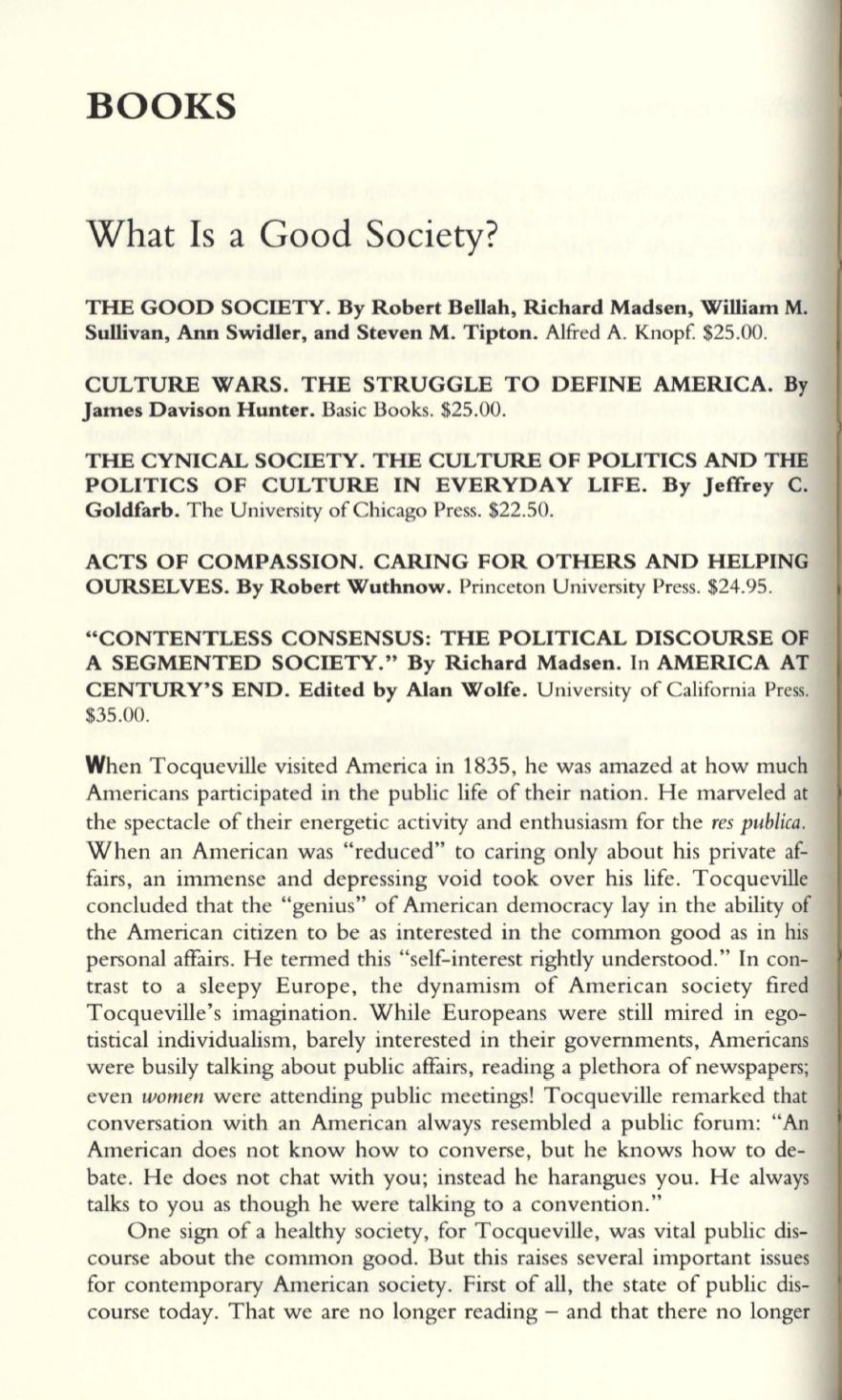
BOOKS
What Is a Good Society?
THE GOOD SOCIETY. By Robert Bellah, Richard Madsen, William
M.
Sullivan, Ann Swidler, and Steven M. Tipton.
Alfred
A.
Knopf
$25.00.
CULTURE WARS. THE STRUGGLE TO DEFINE AMERICA.
By
James Davison Hunter.
Basic Books.
$25.00.
THE CYNICAL SOCIETY. THE CULTURE OF POLITICS AND THE
POLITICS OF CULTURE IN EVERYDAY LIFE. By Jeffrey C.
Goldfarb.
The University of Chicago Press.
$22.50.
ACTS OF COMPASSION. CARING FOR OTHERS AND HELPING
OURSELVES. By Robert Wuthnow.
Princeton University Press.
$24.95.
"CONTENTLESS CONSENSUS: THE POLITICAL DISCOURSE OF
A SEGMENTED SOCIETY." By Richard Madsen.
In
AMERICA AT
CENTURY'S END. Edited by Alan Wolfe.
University of California Press.
$35.00.
When Tocqueville visited America in 1835, he was amazed at how much
Americans participated in the public life of their nation. He marveled at
the spectacle of their energetic activity and enthusiasm for the
res publica.
When an American was "reduced" to caring only about his private af–
fairs, an immense and depressing void took over his life. Tocqueville
concluded that the "genius" of American democracy lay in the ability of
the American citizen to be as interested in the common good as in his
personal affairs. He termed this "self-interest rightly understood." In con–
trast to a sleepy Europe, the dynamism of American society fired
Tocqueville's imagination. While Europeans were still mired in ego–
tistical individualism, barely interested in their governments, Americans
were busily talking about public affairs, reading a plethora of newspapers;
even
women
were attending public meetings! Tocqueville remarked that
conversation with an American always resembled a public forum: "An
American does not know how to converse, but he knows how to de–
bate. He does not chat with you; instead he harangues you. He always
talks to you as though he were talking to a convention."
One sign of a healthy society, for Tocqueville, was vital public dis–
course about the common good. But this raises several important issues
for contemporary American society. First of all, the state of public dis–
course today. That we are no longer reading - and that there no longer


